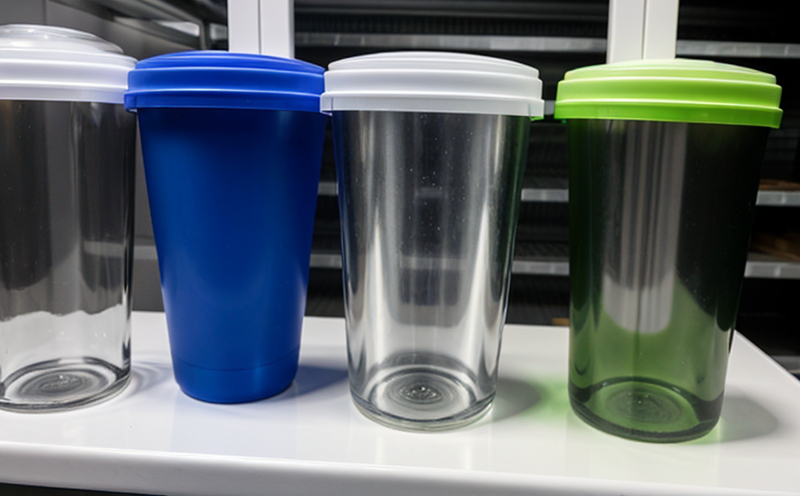ISO 754-1 Chemical Resistance Testing
The ISO 754 series of standards provides comprehensive guidance on chemical resistance testing for glass containers. Specifically, ISO 754-1 focuses on the determination of the resistance of glass to contact with a defined set of chemicals. This service is crucial for quality managers and compliance officers who need to ensure that their packaging materials meet rigorous international standards.
The test method described in ISO 754-1 involves exposing glass specimens to various chemical environments under controlled conditions, simulating real-world scenarios. The objective is to evaluate the durability of the glass against potential corrosive effects from these chemicals. This service ensures that packaging materials are safe for use in diverse applications, thereby protecting both the integrity of the product and consumer safety.
Testing parameters include specimen preparation, temperature control during exposure, duration of contact with chemicals, and post-test evaluations. The process is designed to mimic actual storage and transportation conditions, ensuring accurate assessment of glass resistance. Compliance with ISO 754-1 not only meets regulatory requirements but also enhances brand reputation by demonstrating a commitment to quality.
The test results are reported in a detailed manner, providing specific data on chemical resistance levels. This information is invaluable for R&D engineers and procurement teams as they can use it to optimize material selection and product design. By adhering to ISO 754-1 standards, businesses ensure that their glass packaging meets the highest quality benchmarks.
| Applied Standards | Description |
|---|---|
| ISO 754-1:2018 | Determination of resistance to contact with chemicals in glass containers. |
| ASTM C136 | Density of nonporous ceramics, glass, technical glasses, and similar materials by gas pycnometer method. |
Applied Standards
The ISO 754-1 series of standards is primarily used for determining the resistance of glass containers to contact with chemicals. This includes a range of tests designed to evaluate how well different types of glass withstand various chemical environments.
| Applied Standards | Description |
|---|---|
| ISO 754-1:2018 | Determination of resistance to contact with chemicals in glass containers. |
| ASTM C136 | Density of nonporous ceramics, glass, technical glasses, and similar materials by gas pycnometer method. |
Industry Applications
- Beverage industries for carbonated drinks like soda and beer
- Liquid pharmaceuticals packaging to ensure compatibility with drug formulations
- Cosmetics and toiletries containers to maintain product integrity during shelf life
- Food industry for acidic or alkaline products, such as jams, sauces, and pickles
Customer Impact and Satisfaction
The ISO 754-1 chemical resistance testing service has a profound impact on customer satisfaction by ensuring that glass packaging is reliable and safe for its intended purpose. Quality managers and compliance officers can rest assured knowing their products meet international standards, which enhances the reputation of both manufacturers and distributors.
R&D engineers benefit from this service as they gain valuable insights into material performance under various chemical conditions. This knowledge allows them to innovate and develop improved packaging solutions that not only comply with regulatory requirements but also exceed customer expectations. Procurement teams can leverage these test results to source high-quality materials confidently, knowing the integrity of their supply chain.
End consumers are protected from potential risks associated with compromised packaging, ensuring product safety and quality throughout the supply chain. This comprehensive approach to chemical resistance testing fosters trust between stakeholders, ultimately leading to increased customer satisfaction and loyalty.





